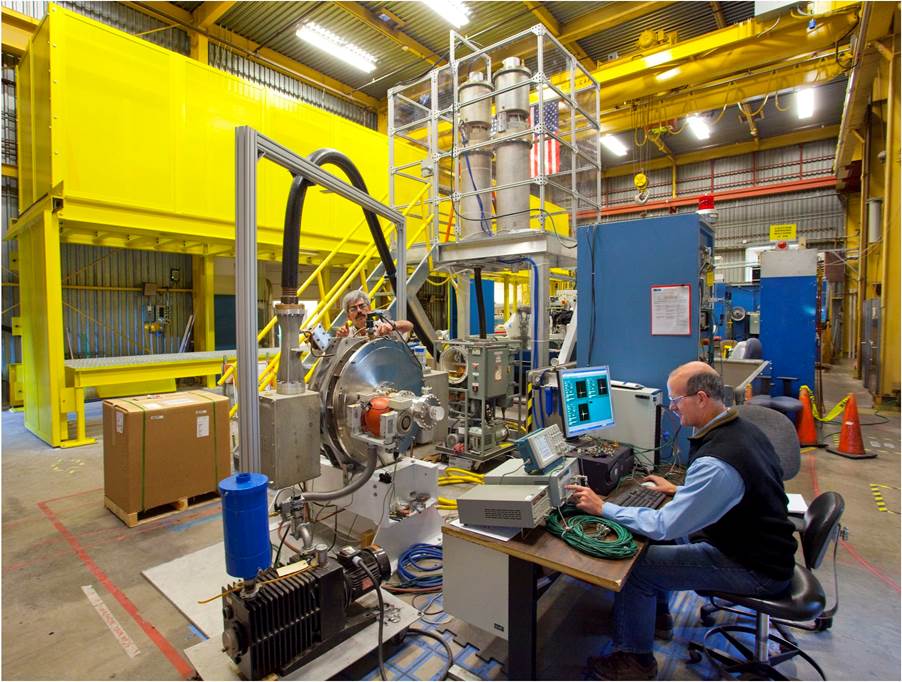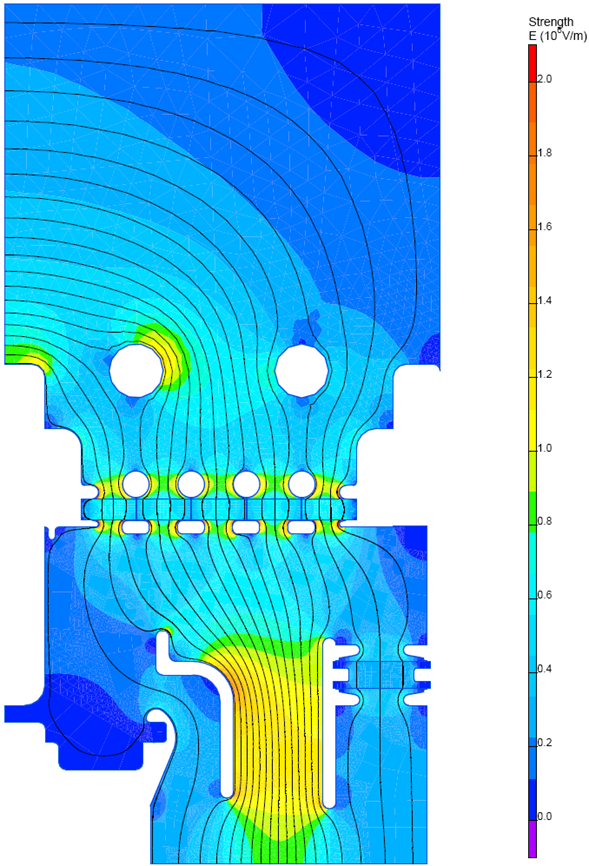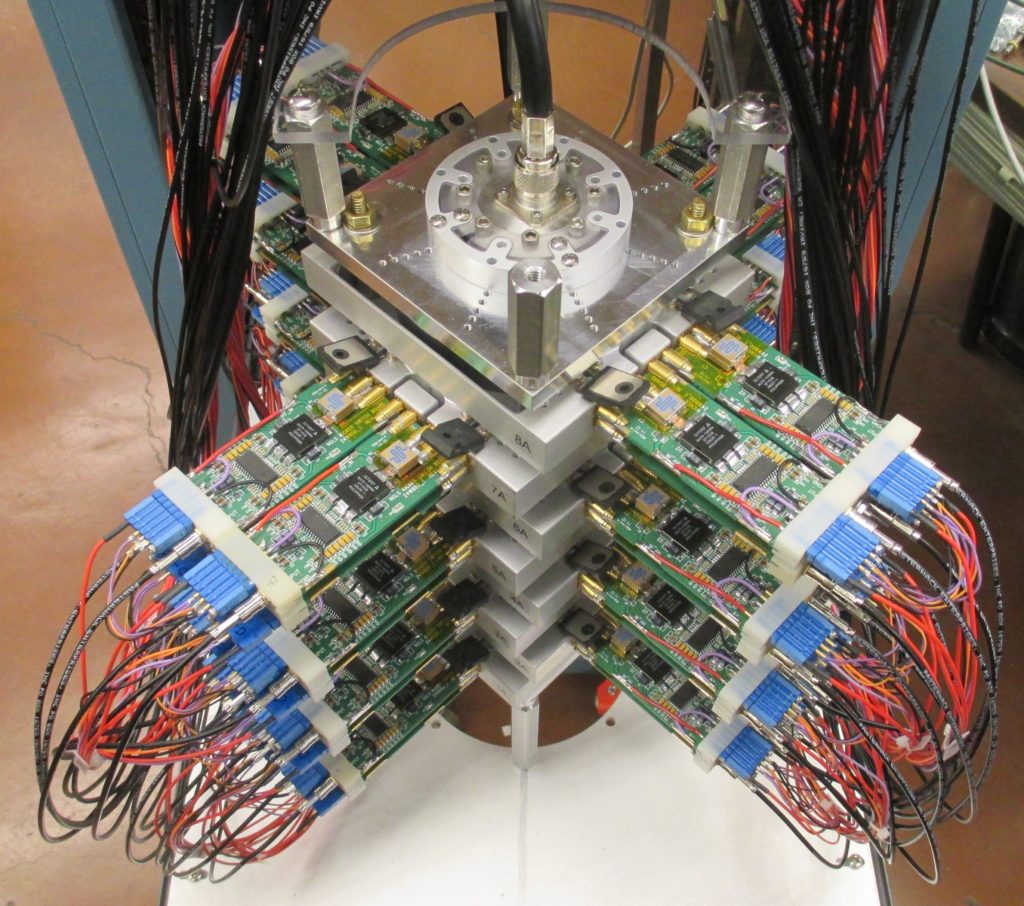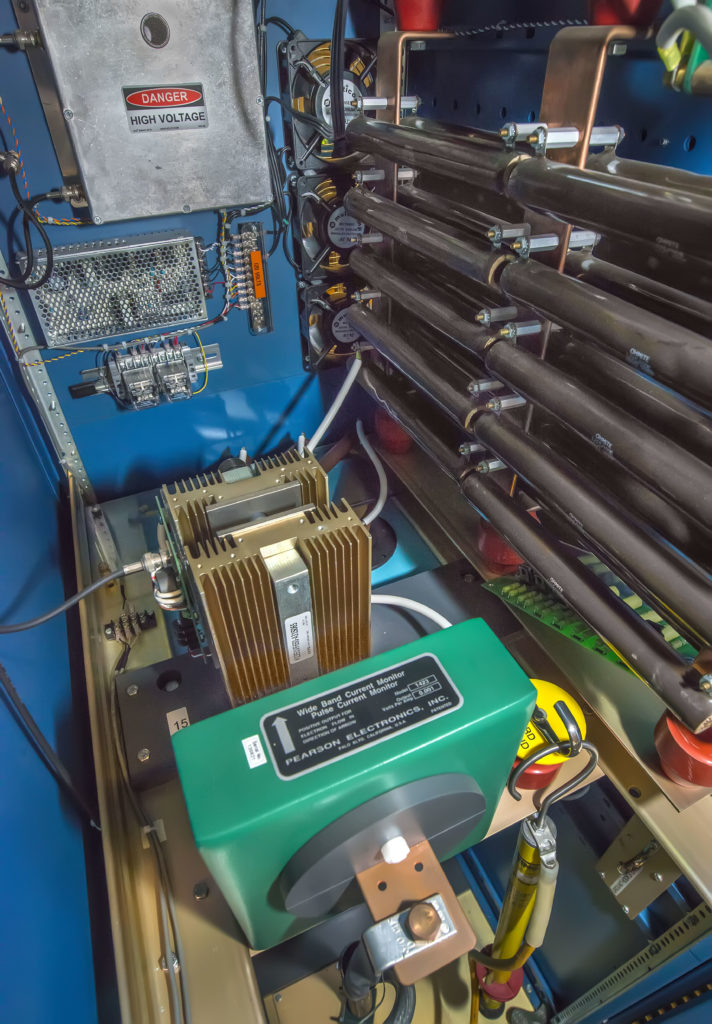Pulsed power is a field of research which explores methods of providing high peak power (the product of the voltage and the current) to a load in the form of short pulses (nanoseconds to microseconds duration). These systems typically include a primary power supply, energy storage capacitor, and a switch which transfers the pulse of energy to the load. Loads may be electromagnets, induction accelerator cells, electrostatic accelerator electrodes, plasma sources, antennas, and microwave vacuum tubes. Research includes efficient energy conversion and storage techniques, high performance switching, and precision pulse shaping.
High voltage (kilovolts to megavolts) is associated with pulsed power systems, but some applications, like particle detectors, require continuously applied high voltage (not in the form of short pulses) and do not require high peak power. High voltage systems require careful design so that the electric fields created do not exceed the breakdown threshold of the dielectric (air, vacuum, plastic, etc.) which is between the high voltage electrode and ground. Electrostatic simulations and high voltage testing are used to qualify designs.







